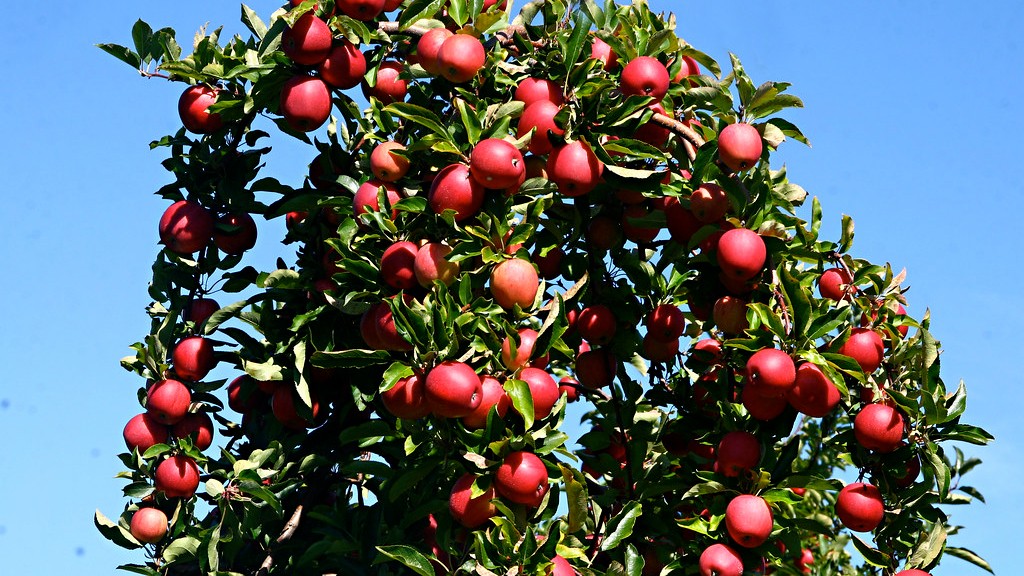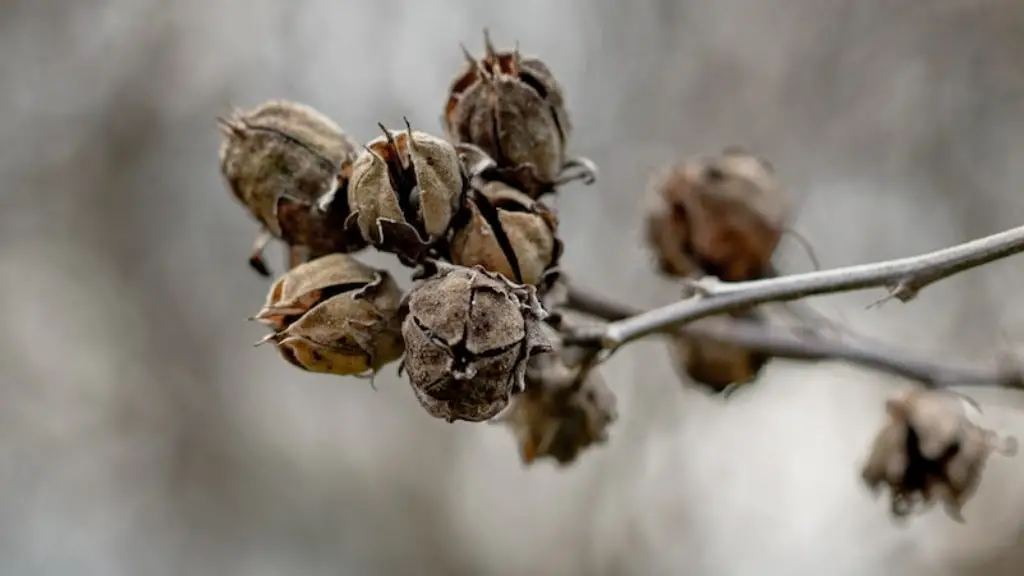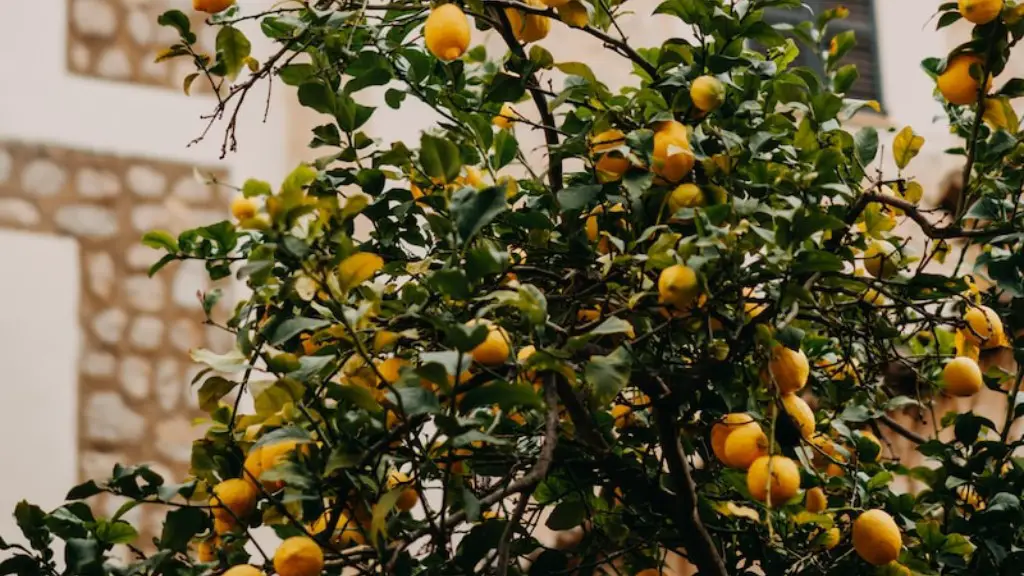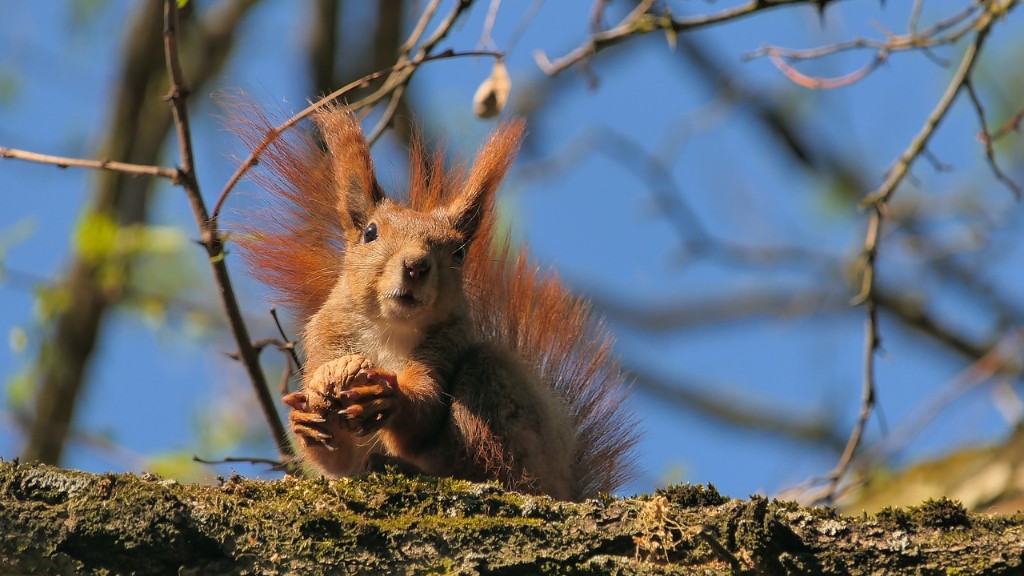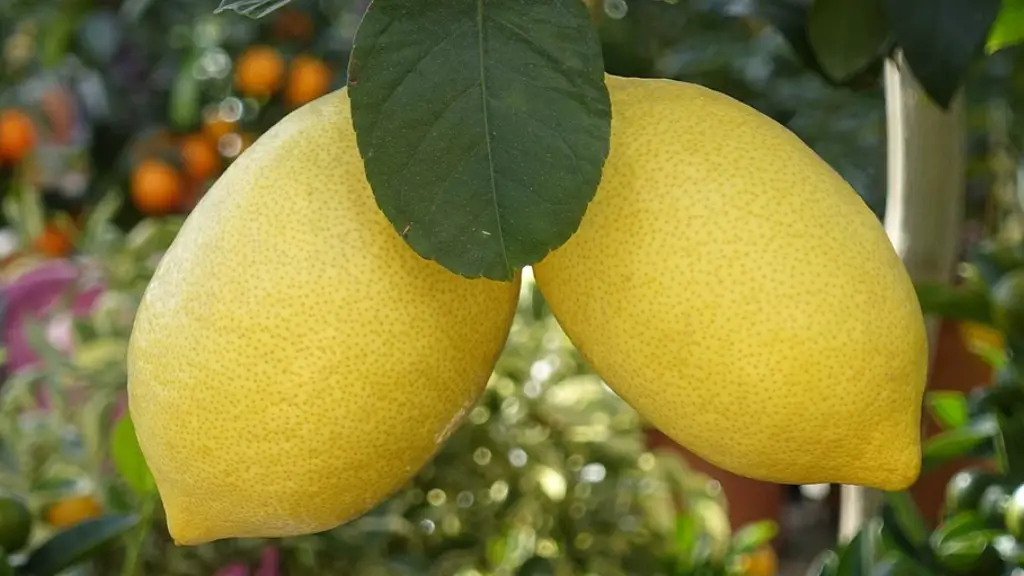Squirrels are a pest that can cause great damage to apple trees. They can eat away at the roots and branches of the tree, and will even eat the apples themselves as well. Fortunately, there are several ways to stop a squirrel infestation and ensure that your apple tree stays healthy and blooming.
One of the most effective methods of preventing squirrels from eating apple trees is by using chemical repellents. These repellents will either make the trees or fruit unpalatable to the squirrels, or will prevent them from climbing onto the branches. Repellents such as cayenne pepper, garlic, and synthetic fox urine have all been shown to be effective.
You can also create physical barriers to prevent squirrels from getting to your trees. These may include fences, walls, netting, and other barriers. Be sure to use humane, eco-friendly solutions whenever possible, as chemical repellents and physical barriers can be damaging to other wildlife as well.
Exclusion is another important tool at your disposal. Make sure all holes, gaps, and other areas that a squirrel could use to gain access to the tree are clogged or blocked. You can also make sure external structures like sheds or trees are far away enough from the apple tree that squirrels cannot reach it.
If none of these solutions are effective, you can also take a preventative approach by considering the habitat of the squirrels around your apple tree. Avoid planting trees near water or feeding them, as this will make them more likely to remain in your yard. Additionally, cleaning up fallen fruit, nuts, and other food sources regularly will reduce the number of squirrels that are attracted to your tree.
Trapping is another solution for preventing an infestation of squirrels. Check with local wildlife regulations to ensure that you follow safe practices when trapping squirrels. If you decide to use traps, be sure to release the squirrels away from your property, so that they cannot return and continue to damage your tree.
These solutions can help you keep your apple tree safe from squirrels. However, preventing an infestation is the best solution. Be vigilant about monitoring for signs of squirrels, and take action immediately if you notice any. By proactively protecting your apple tree, you can ensure that you don’t have to worry about squirrels eating your precious fruit.
How to Use Chemical Repellents to Stop Squirrels from Eating Apple Trees
The most effective way to stop squirrels from eating apple trees is by using chemical repellents. These repellents will either make the trees or fruit unpalatable to the squirrels, or will prevent them from climbing onto the branches. Many repellents on the market are designed specifically to deter squirrels, such as cayenne pepper, garlic, and synthetic fox urine. However, before applying any chemical repellents, it is important to read the instructions carefully to ensure that the repellent will not be hazardous to humans or other wildlife in your area.
It is also important to choose the right type of repellent for the job. If the goal is to repel squirrels from climbing the tree, then a contact irritant such as cayenne pepper will be most effective. However, if you are aiming to discourage squirrels from eating the fruit on the trees, then a taste aversion repellent like garlic or synthetic fox urine is likely to be the better solution.
Chemical repellents are an important tool to help stop squirrels from eating apple trees. When applied correctly, they can provide protection from squirrels without harming other wildlife in the process. Just be sure to read the instructions carefully and choose the right type of repellent for the job before applying it to your apple trees.
Creating Physical Barriers to Deter Squirrels from Eating Apple Trees
Creating physical barriers is another effective way to stop squirrels from damaging apple trees. Physical barriers such as fences, walls, and netting can be used to deter squirrels from reaching the tree, preventing them from damaging the roots, branches and even the fruit itself. However, it is important to note that these barriers can also be damaging to other wildlife, so it is important to choose humane and eco-friendly solutions whenever possible.
For example, instead of putting up a fence, you can use tree guards. Tree guards are generally pieces of plastic, metal, or wood that cover the main stem of an apple tree. They can be very effective at keeping squirrels away because they are flexible, meaning that they won’t trap squirrels while they are trying to climb the tree. In addition, they can also provide protection from other pests such as deer, rabbits, and birds.
Netting is another option, but the type and size of the netting will be dependent on the size of the tree. Generally, netting with a small mesh size should be used for larger apple trees. The netting should be securely attached to the tree and evenly stretched to create a continuous barrier around the tree. This will prevent squirrels from climbing the tree and will also provide added protection from other pests.
Physical barriers can be an effective tool to prevent squirrels from damaging apple trees. When choosing a physical barrier solution, it is important to ensure that it is humane and eco-friendly. Additionally, it should be applied correctly and securely to ensure that it is providing the desired amount of protection.
Exclusion to Stop Squirrels from Eating Apple Trees
Exclusion is another important method in preventing squirrels from eating apple trees. In order to keep squirrels out of apple trees, you must make sure that all potential entry points are blocked or sealed. This includes any gaps, holes, or other openings that may be present in the trunk or branches of the tree. Additionally, you should keep external structures such as sheds or other trees away from the apple tree, as these could be used by squirrels to climb onto your tree.
In some cases, you may need to take further steps to ensure that your tree is squirrel-proof. You can use anti-tree climbing devices such as tree collars or tree spikes to make it harder for squirrels to climb the tree. These should not be used as a long-term solution, but rather as a temporary measure when an exclusion method has failed. As these devices can cause injury to squirrels and other wildlife, they should only be used as a last resort.
Exclusion methods can be highly effective at keeping squirrels away from apple trees. By preventing the squirrels from having access to the tree, they will be unable to damage it. Therefore, it is important to make sure that all potential entry points are blocked or sealed, and that external structures like sheds or trees are placed far enough away to prevent squirrels from using them as a means to get to the tree.
Using Prevention to Stop Squirrels from Eating Apple Trees
Prevention is often the best method when it comes to deterring squirrels from eating apple trees. In addition to adopting the methods previously discussed, you should also take steps to make sure that the squirrels in the area are not attracted to the area around your tree. This may mean cleaning up any fallen fruit or nuts, avoiding planting trees near water, and considering how and when you are feeding the squirrels in the area.
Cleaning up fallen food sources is particularly important for deterring squirrels from apple trees. By removing this food source, it will be less likely for squirrels to remain in the area near your tree. Additionally, you may want to consider avoiding planting trees near water sources, as squirrels will be more likely to stay in the area. Finally, be mindful of when and how you are feeding the squirrels in your area. If you feed them frequently and in large quantities, they may become dependent on this food source and may make the area around your tree their preferred habitat.
Preventive measures are an important tool when it comes to stopping squirrels from eating apple trees. By removing potential food sources and avoiding planting trees near water sources, you can help deter squirrels from making your apple tree their preferred habitat. Additionally, refraining from over-feeding the squirrels can also help in preventing an infestation.
Trapping to Stop Squirrels from Eating Apple Trees
If all else fails, you may want to consider using traps to remove the squirrels from your yard. Whether you opt to use live traps or lethal traps is up to you, but be sure to check local wildlife regulations when selecting a trap, as some traps may be prohibited in your area. Additionally, make sure to release any trapped squirrels away from your property, so that they cannot return and continue to damage your tree.
When setting up traps, be sure to position them near areas that are frequented by the squirrels. You can also bait the traps by leaving food inside, such as peanuts, sunflower seeds, or other nuts. If the squirrels are familiar with eating from the traps, they will be more likely to enter them and can be easily removed from your yard.
Trapping is another effective way to stop squirrels from eating apple trees. If done safely and in adherence with local regulations, it can be an effective tool in preventing an infestation. Just remember to release any trapped squirrels away from your property, so that they cannot return and cause further damage.
